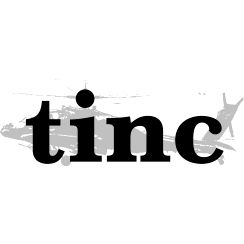The only way to have full control over your personal data is to run your own server. This is not for everyone though, as it requires considerable time investment and technical knowledge.
Cloud file storage is also available via Chwala/iRony components of Kolab with the capability to integrate various storage backends. Files are accessible via storage layer access options, WebDAV and Kolab web interface integrating Roundcube.
Tarsnap is not recommended on PRISM Break due to its lack of anonymous payment options and strict copyright on the client that makes it difficult to replace the service in the event Tarsnap is shut down.
BitTorrent Sync, MEGA, and SpiderOak are services that are built on either partially or fully proprietary software. They will not be recommended on PRISM Break until they open source the entirety of their codebase.
With closed source software, you need to have 100% trust in the vendor because there's nothing except for their morality in the way of them leaking your personal information. Even if you can vouch for their integrity, proprietary software invariably has more uncaught security bugs and exploits because there are fewer eyes examining the source code.
Another alternative to cloud storage is local backup with external hard drives and USB flash drives. This method is reliably more secure than storing data on a network, but comes at a convenience cost.
A mesh network is a decentralized peer-to-peer network, with user-controlled physical links that are usually wireless.
“Mesh networking (topology) is a type of networking where each node must not only capture and disseminate its own data, but also serve as a relay for other nodes, that is, it must collaborate to propagate the data in the network.“
Apple, Google, and Microsoft are allegedly a part of PRISM. Their proprietary operating systems cannot be trusted to safeguard your personal information from the NSA. We have two free alternatives: GNU/Linux and BSD.
GNU/Linux has a much larger community to help you with the transition. It’s recommended that you begin your explorations by looking for a GNU/Linux distribution that suits your needs. Additionally the Free Software Foundation hosts a list of completely Free distributions.
Debian has a long tradition of software freedom. Contributors have to sign a social contract and adhere to the ethical manifesto. Strict inclusion guidelines make sure that only certified open source software gets packaged in the main repositories.
Fedora is a community edition that serve as the stable basis for enterprise ready GNU/Linux distributions with commercial support. Companies all over the world trust Red Hat Inc. because of their transparency throughout the whole development process.
Canonical’s Ubuntu is not recommended by PRISM Break because it contains Amazon ads and data leaks by default. GNU/Linux distributions based on Ubuntu are also currently not recommended due to several other reasons.
Riseup also offers email, XMPP, chat and data hosting (via Up1) services, all of which are accessible through Tor Hidden Service addresses. The list of these addresses is available here.
If you have system administration knowledge, please strongly consider running an instance of pump.io (or something else) for your friends, family, or favorite community. Many of them would be willing and grateful to escape Facebook if you provide them a way out.
For those of you without your own server, RetroShare is the easiest way to start your own encrypted social network.
DuckDuckGo is a software-as-a-service (SaaS) hosted around the world that provides you with anonymous search results from these sources. DDG open source components are available here.
There is also a DuckDuckGo hidden service at 3g2upl4pq6kufc4m.onion for Tor users.
MetaGer is a SaaS by the German non-profit SUMA e.V. that provides you with anonymous meta search results.
Startpage is a SaaS hosted in the USA and the Netherlands that provides you with anonymous Google search and image results through a free proxy.
 Instapaper
Instapaper IBM Notes
IBM Notes Imgur
Imgur Instagram
Instagram

 Ventrilo
Ventrilo